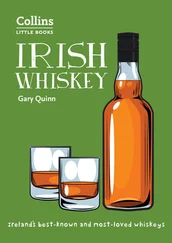The I think you’ll find part was as good a welcome to this place as Leo had yet received. It planted a seed in Leo, that maybe he might choose to stay here.
He was nowhere near sleep. The fluidity of his last thirty hours, the uncertainty of the next thirty, at least made this an exciting turn in what he now saw was his poorly led and dim-prospected life. He wanted to stick around to find out whether talking his way into rehab would turn out to be a good idea or just a brief detour in a longer descent.
James must have sensed that Leo, though silent, was miles from sleep, because he started talking. Just started telling his story in a nice baritone voice. It was like a rehab lullaby; a country ballad with no music.
He was a criminal defense attorney from Vancouver, Washington. He had fended off a DUI three months back. Now, concurrent complaints about him by his ex-wife, his business partner, his girlfriend, his parents, and the state’s attorney had made his appearance at Quivering Pines the best of a very limited range of options. He copped to the charges immediately. More or less. That is, he admitted up-front that he couldn’t seem to stop smoking crack cocaine, that he regularly lost his car, that his legal career was in tatters. And while he objected to the creepiness of the word, he conceded that he had technically, legally, stalked his girlfriend. “But I love her,” he said. “I love terrible things.” He allowed that his ex-wife could fairly be called saintly and long-suffering for putting up with his shit. But he said she was also a vindictive harpy ball squeezer who could drain the joy from a Ferris wheel. Their five-year-old son, Caleb, had been lately wreaking havoc and throwing all the antisocial he could at the Vancouver public-school system.
But the business partner was a scheming little prick and should not be credited. On that point, James was crystal clear. The two men owned a sports tavern on a busy stretch of state highway. James owned 55 percent.
“It’s called Aces. Pretty grim. Lots of cardboard cutouts and hangy-down advertisements. But, you know, ten grand cash, easy, on the big nights.”
James was barred from the premises of his own tavern. “All I need to do is have a drink in there every night, just to remind the staff that I’m a real person. That dickbag has turned them all against me. I could’ve drunk Sprite. I mean, I couldn’t have. But, you know. Judge was ready to include the workplace exemption in the DUI adjudication when Dickbag gets me barred. Submits an affidavit, says staff may feel compromised by me. Whatever that means. And if you’re working at Aces, you’re pretty compromised already, to be frank. I just wonder which one of my enemies told that moron what an affidavit is. I think he may be making a play for my ex-wife. You believe that?”
Leo decided right then that he was deeply in James’s corner on this; Dickbag was definitely a bad guy, and pretty much Leo’s enemy also. In the dark, from his pillow, unseeable, Leo made a face that meant all this.
“So I’m having some trouble taking on board the forgiveness stuff that they’re saying is in some totally undemonstrable way necessary to stay sober. Right now I see two reasons to stay alive, sober or not: to help my boy out of this patch and to take a gun down to Aces and shoot Dickbag in the face.”
“Ah. Don’t do that, now,” said Leo, his voice raspy from underuse. “Seems self-endangering to the point of suicide. And if not death, then prison, right? Or would you escape after shooting Dickbag? No. You can’t leave your son alone in the world. I mean, you will one day, I guess. But not yet you shouldn’t.” He thought that sounded bossy though, and he wanted to let James know that he was speaking from experience. “I know,” he said. “I am an orphan.”
Leo wondered whether the word was justified. He had never dropped it like that before. He was twenty-two when it happened: the fire, his escape, his parents’ non-escape.
An extra beat of silence in the blue room while James absorbed that. “Yeah, I know. I can’t leave Caleb,” he said, and sighed, and said fuck while he sighed, and the sadness in the sigh gave the dull cuss real weight. “My boy may have a worse brain than I do, but he has a better heart. I should forget about Dickbag; let him rob me of that whole toxic joint. Bankruptcy’s low down on my list of problems right now. I know what I’m supposed to do. But I just can’t seem to quit devising ways of making that man suffer. I tried to say could I use that as my Higher Power — my obsessive sense of vengeance against this one guy.”
“They said no, right?”
“They said no,” said James. “I think I want to use Zeno of Citium. ‘The passionate emotions are the result of errors in judgment.’ That’s Zeno. Yep, once I get rid of those passionate emotions, the errors in judgment will just fall away.”
Was that wry? Leo had always wondered about wry . Whatever it was, it was comforting to hear about this man’s bus accident of a midlife. Compared to James’s, Leo’s situation didn’t seem all that bad. Okay, he was a fragile-minded, careerless, privileged loser. Okay, he was alcoholically inclined and overfond of pot. And okay, so he’d let his imagination run too wild; he’d seen patterns and meaning where really there was only the ordinary world, drab and difficult for every poor sinner. He was embarrassed, deeply embarrassed. But embarrassed was related to humbled, wasn’t it? And humbled was said to be a good thing.
So he was actually a little cheered as he lay in the dark. Crack cocaine? Girlfriend-stalking? Bankruptcy? He saw that he had stopped well shy of the true cliff edges.
In the morning, before breakfast, Leo followed James to the lounge-like area in the middle of the men’s wing. James explained that every morning a new man led his co-recoverers on a guided meditation. It was on the chore wheel in the lounge: Snack, Library, Kitchen, Meditation, Sweep Patio. Men’s names beside these duties. Leo’s wasn’t up there yet.
Men sat in chairs and on the floor. “You’re just not allowed to lie down,” said James. A few men were pushing the edge of that rule, slumped in near-sleep in the corners of couches. Most men kept their eyes closed. One show-off sat in full lotus. The meditation was led by a man in loafers and feathered hair. He took his job seriously, making his voice all Garrison Keillor-y as he drew with words a sylvan path along a quiet shore. “The water laps at the mucky shore, the pine boughs wave gently in the morning breeze,” he said. But after a few minutes of that, he depleted his stock of relaxing imagery, so he brought the men out of a stand of pine to a clearing of shore, where they found a bass boat, “an Allison XB-Twenty-One Bassport Pro Two and Two,” said the man. “With a hydraulic jackplate, Garmin GPS in the dash, two chargers, a Livewell pump-out, tip-up consoles, a swing trailer tongue, LED lights, disc brakes, oil-bath hubs, a Minn Kota Pro-Eighty trolling motor, and dual-rod storage racks.” Gamely, Leo tried to imagine this craft.
After the bass-boat meditation, Leo tagged along with James to the smoking station, a pedestal ashtray set the state-mandated thirty feet away from the main facility. Next to the ashtray was a concrete pillar, six feet high with a dirty metal circle near its top, its function a complete mystery to Leo. Security camera? Cyclopean statue?
James put an effeminately slim menthol cigarette in his mouth, then reached a hand around the rear of the pillar and pushed a button. In seconds, the dirty metal circle glowed bright orange. James leaned his cigarette into the glowing hole.
It was an electric cigarette lighter, like the kind in a car’s dashboard. Of course, butane lighters were contraband around here. And it was definitely a tobacco disincentivizer, making smokers embrace a concrete pole and stick their cigarettes in its fiery, head-high anus. It didn’t seem to faze James, though, and Leo liked him even more for that.
Читать дальше












